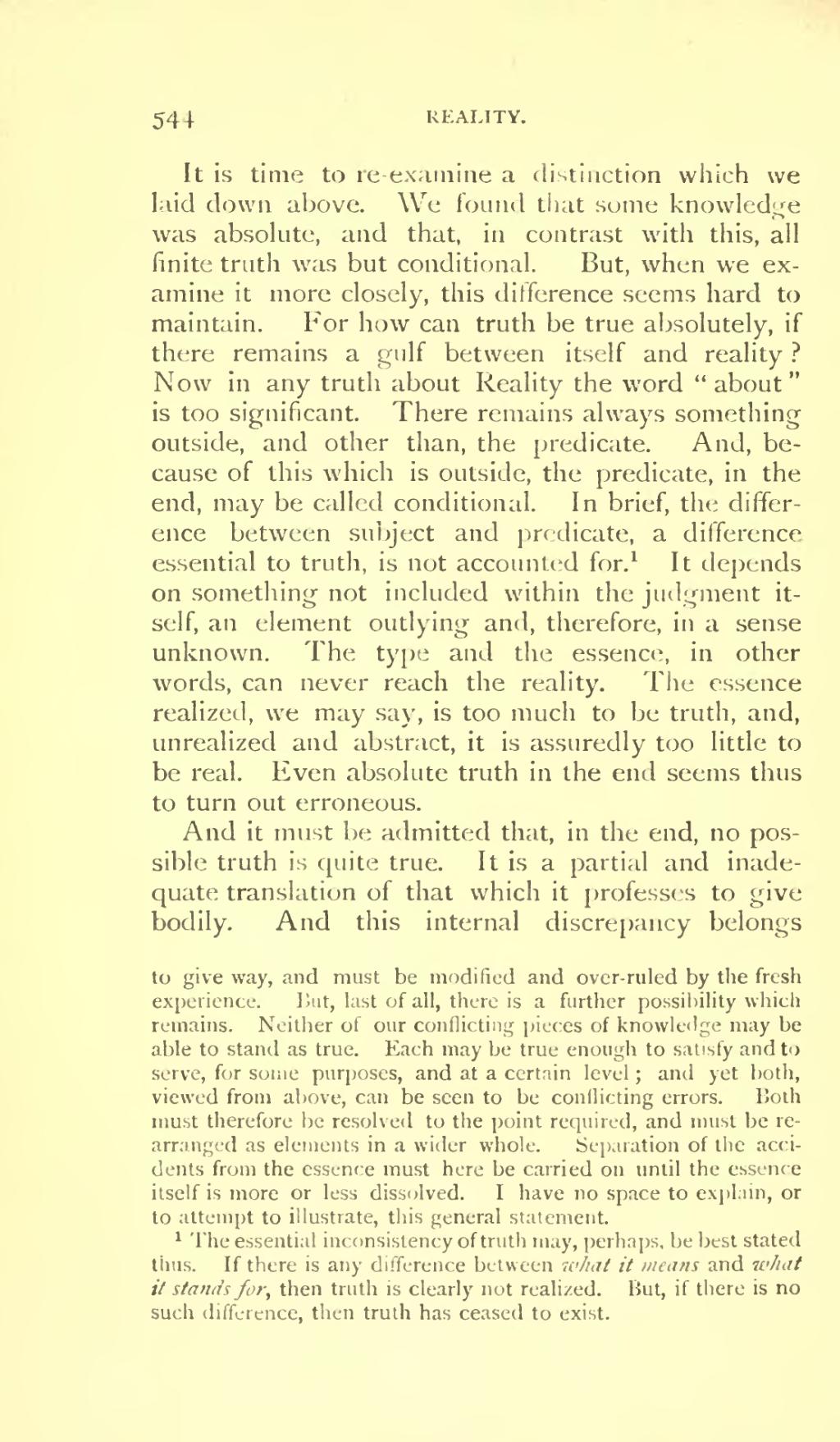It is time to re-examine a distinction which we laid down above. We found that some knowledge was absolute, and that, in contrast with this, all finite truth was but conditional. But, when we examine it more closely, this difference seems hard to maintain. For how can truth be true absolutely, if there remains a gulf between itself and reality? Now in any truth about Reality the word “about” is too significant. There remains always something outside, and other than, the predicate. And, because of this which is outside, the predicate, in the end, may be called conditional. In brief, the difference between subject and predicate, a difference essential to truth, is not accounted for.[1] It depends on something not included within the judgment itself, an element outlying and, therefore, in a sense unknown. The type and the essence, in other words, can never reach the reality. The essence realized, we may say, is too much to be truth, and, unrealized and abstract, it is assuredly too little to be real. Even absolute truth in the end seems thus to turn out erroneous.
And it must be admitted that, in the end, no possible truth is quite true. It is a partial and inadequate translation of that which it professes to give bodily. And this internal discrepancy belongs
- ↑ The essential inconsistency of truth may, perhaps, be best stated thus. If there is any difference between what it means and what it stands for, then truth is clearly not realized. But, if there is no such difference, then truth has ceased to exist.
